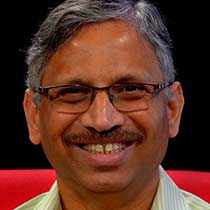How to Efficiently Scale With Capital

The goal of most startup companies is to achieve growth and profitability. However, the process of achieving those goals can be different for every company. The key to long-term success for most startups is to scale with efficiency, but that is not always easy. I recently read an interview by Alan Olsen, CPA and Managing Partner Greenstein, Rogoff, Olsen & Co., LLP a regional CPA firm of Montgomery Kersten, an angel investor and Independent Board member of several startups in Silicon Valley. Alan mentioned to Monty that many well-known startup companies have a reputation of burning through a lot of cash quickly. So Alan asked him how he helps companies scale and balance spending with growing their profits to a break-even point?
Old-Fashioned Approach
Monty said when it comes to scaling he is much more old-fashioned than many of the current crops of big-name startup companies, including Uber, which raised huge amounts of funding and have a massive marketing footprint. He has nothing against what these companies are doing. But Monty believes in capital efficiency and building huge shareholder value with small injections of financing. “I like the old fashioned way of modest capital, great productivity, profitability; conserve and build cash, after you have to burn it for a short period of time.”
Startup Bubble Time?
Alan asked Monty if we were currently in a startup bubble? “Everybody has their own view. I strongly feel that we are in a startup bubble. We’ve had a record amount of venture capital dumped into companies that aren’t profitable and that aren’t having exits. We have almost no IPOs and many fewer acquisitions and a whole lot of unicorns with no way out for investors. I think there’s a big bubble that’s going to pop here and I think Silicon Valley traffic patterns are going to get easier for our commutes in the next year.”
More IPOs Needed
Alan asked Monty about the fact that there are no exits? “It’s a very, very serious problem because the venture capitalists promise their investors returns that are liquid cash. They have to return cash or public stock to their limited partners, as a way to pay them back and reward them with returns on their capital. If they have no acquisitions of their own investments and they have no IPOs they don’t have any value yet, beyond just the paper stock certificate that they can give back to their limited partners. So there is an imperative to break the log jam in IPOs and to have acquisitions happen more frequently.” Monty foresees a revisiting of the dot.com bust; not so much in dot.com businesses today but in young startups that have raised too little and spent too quickly. Those companies that have too thin a business model and didn’t have a plan to win customers and turn profitable in time could be in trouble. “I think you’re going to see a lot of washouts intentionally let go by the venture capitalists so they can concentrate on the stronger horses they have running in the race.”
To view the whole interview between Monty Kersten and Alan click here
Up Your Executive Recruiting | Summer Anderson
About Summer Anderson Summer Anderson is the Principal and founder of Human Capital Solutions (HCS). A firm dedicated to executive recruiting with specialization recruiting upper management for growth-oriented companies in the technology industry. Summer has over twenty years of experience in shaping retained executive level recruiting strategies. Prior to founding HCR, she worked at…
Balancing Life | Prasad Kaipa
About Prasad Kaipa Prasad has been an advisor and coach focusing on innovation and leadership since 1990 for about 120 C-level executives in Global Fortune 500 companies. Prasad’s unique competence is in helping his clients find their next significant step and take it. He found that unless he helps clients to examine their signature…
Inboard – Disrupting Urban Transportation | Ryan Evans
About Ryan Evans Ryan Evans is the CEO and Co-founder of Inboard Technology. Ryan has always liked being outside, action sports, and business. When the opportunity to came to start Inboard, he jumped at the chance to build his career on these three passions. Ryan and his friend, Theo Cerboneschi, founded Inboard Technology in…
How to Ensure Success in Your Career | David Cline
About David Cline David Cline is one of two founding partners of Global Allies. David is a seasoned veteran with over 30 years of experience in the hospitality and home furnishings industry. David along with his partner, Isaac Kubryk are committed to providing a higher level of product quality and service to the hospitality industry.…




